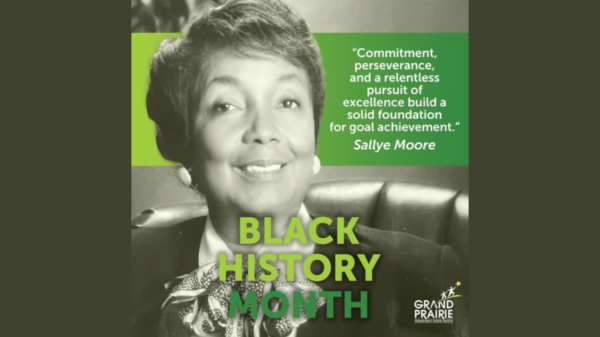By Stacy M. Brown
NNPA Newswire
Sixty years after Dr. Martin Luther King Jr. delivered his iconic “I Have a Dream” speech during the March on Washington for Jobs and Freedom, a ground-breaking new report has laid bare the stark truth of ongoing Black economic inequality in the United States. Titled “STILL A DREAM: Over 500 Years to Black Economic Equality,” the report, is co-authored by prominent experts Dedrick Asante-Muhammad, Chuck Collins, Omar Ocampo, and Sally Sim.
Published by the Institute for Policy Studies (IPS) and National Community Reinvestment Coalition (NCRC) they underscore the enduring disparities faced by Black Americans and highlights the pressing need for concerted action to address these disparities. “Sixty years ago, Dr. King observed that America has defaulted on this promissory note to Black citizens,” said Chuck Collins, an IPS senior scholar who directs the Program on Inequality and the Common Good in Washington, DC.
“Six decades later, despite incremental progress on some fronts, the check of opportunity has still come back with insufficient funds.” Stated by Dedrick Asante-Muhammad, Chief of Race, Wealth, and Community for NCRC, lamented, “It is deeply troubling that, sixty years after the March on Washington for Jobs and Freedom, Black economic equality remains nothing more than a dream for most Black Americans.”
“The revelation that it would take more than 500 additional years to close the economic gap for Black Americans is a stark reminder of the systemic inequities that persist,” Asante-Muhammad asserted.
Sally Sim, a senior organizer, and project specialist at NCRC, emphasized the urgency of the situation. “The sobering projection and findings of our report sixty years after the March on Washington for Jobs and Freedom reinforce that the dream for economic equality for Black Americans remains unfulfilled.”
“On this historic anniversary, let us turn this report into a catalyst for meaningful action towards comprehensive solutions and public support for policies and initiatives that promote Black economic equality.”
Some key findings from the comprehensive report were that despite modest advancements made by African Americans since the 1960s, including reduced poverty rates, increased high school attainment, and lower unemployment rates, income disparities between Black and white Americans have only slightly improved.
The report exposes that in 2021, African Americans earn sixty-two cents to every dollar earned by white families. The report’s authors said, at this rate, achieving income parity would take an astonishing 513 years.
Further, the wealth gap between Black and non-Black Americans has experienced only marginal growth, with African Americans possessing eighteen cents for every dollar of non-Black wealth in 2019.
If this pace continues, it will take approximately 780 years for Black wealth to match non-Black wealth. Median house-hold income for African Americans has shown minimal growth, growing just 0.36% since the turn of the century. Strikingly, it remained lower than white median family income in 1963. Even after over six decades, the Black-white homeownership divide persists.
Black homeownership has grown from 38% in 1960 to 44% in 2021, while white homeownership surged from 64% in 1960 to 74% in 2021.The report outlined a series of recommendations to combat Black economic inequality:
Advocate for full employment and guaranteed jobs to ensure equal economic opportunities for all.
Enact a substantial land and homeownership program to address the enduring homeownership gap between Black and white Americans.
Commit to individual asset building, including financial education, asset matching programs, and supportive policies, to facilitate access to wealth-building opportunities for Black Americans.
Implement policies to reduce dynastic concentrations of wealth and power, tackling the structural barriers that impede economic progress for Black Americans.
Explore targeted reparations to address historical injustices and provide meaningful redress for the economic disparities Black Americans face.
The authors noted that, as the nation reflects on King’s enduring vision for equality and justice, the report serves as a sobering reminder that pursuing Black economic equality remains an unmet challenge in America.
“The findings of this report are sobering and demand immediate and comprehensive action to address the economic disparities faced by African Americans,” remarked Omar Ocampo, a researcher for the Program on Inequality and the Common Good at IPS. “We must invest in transformative policies that address systemic racism and create an equitable society.”

You must be logged in to post a comment Login